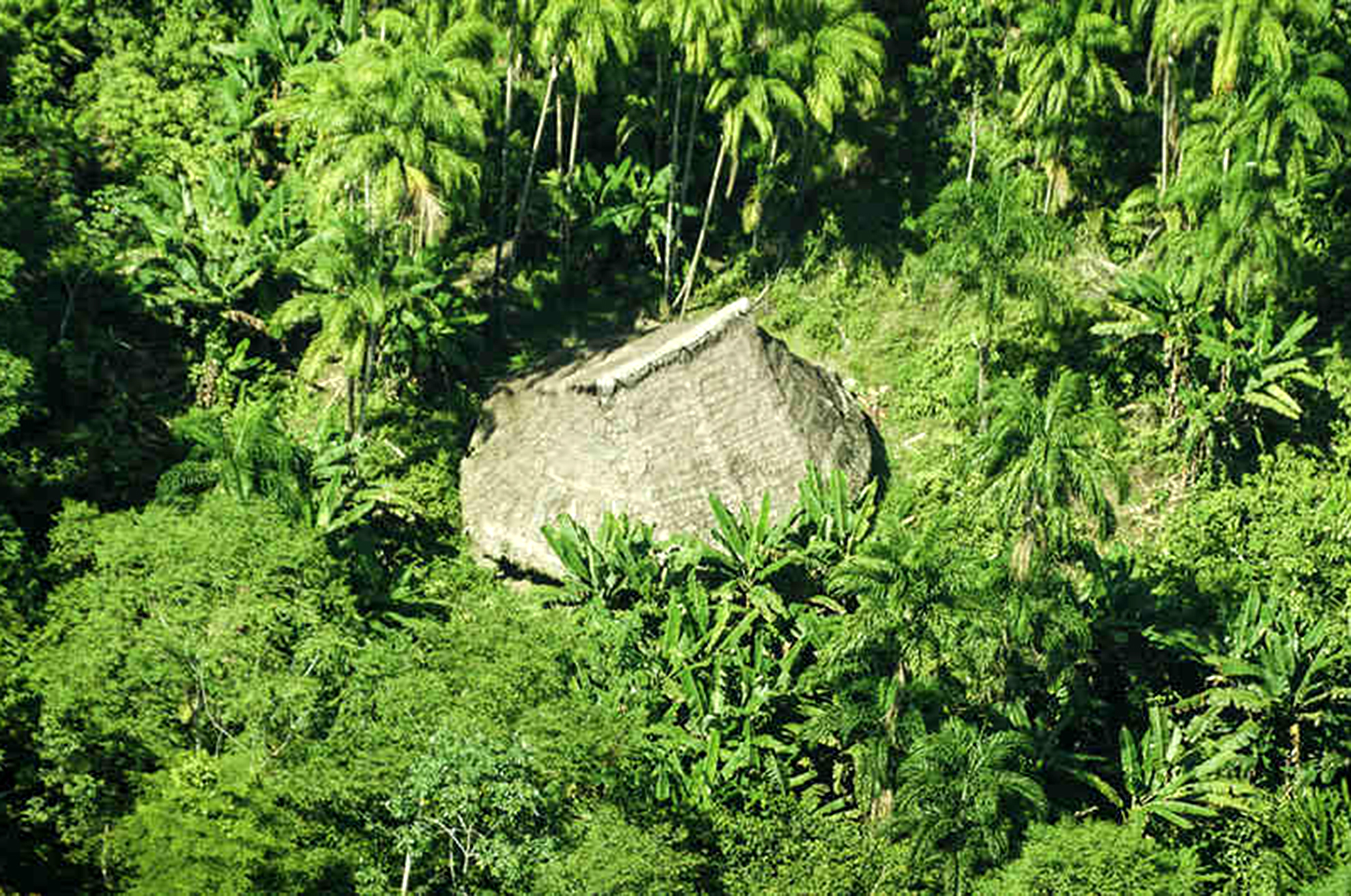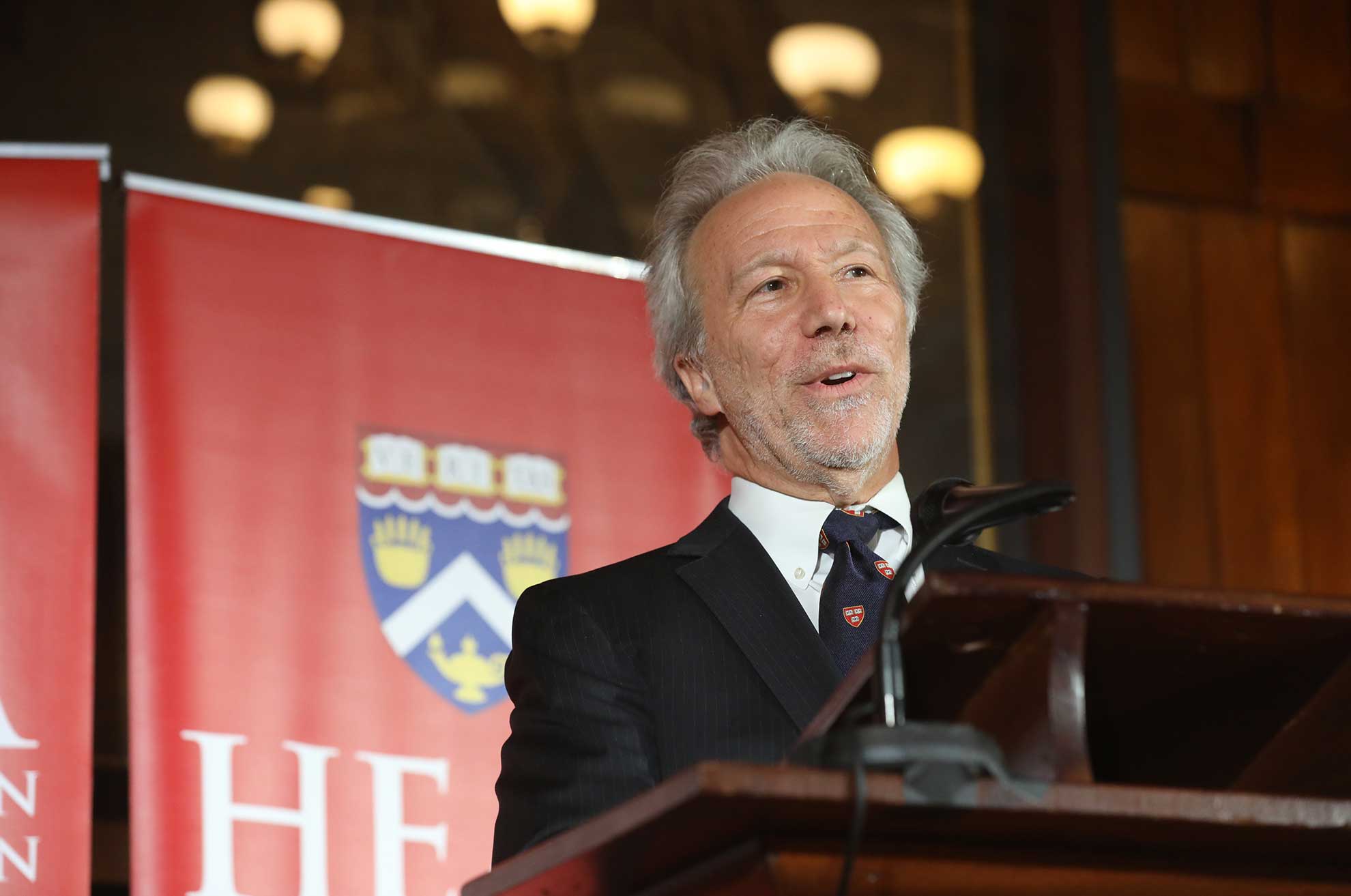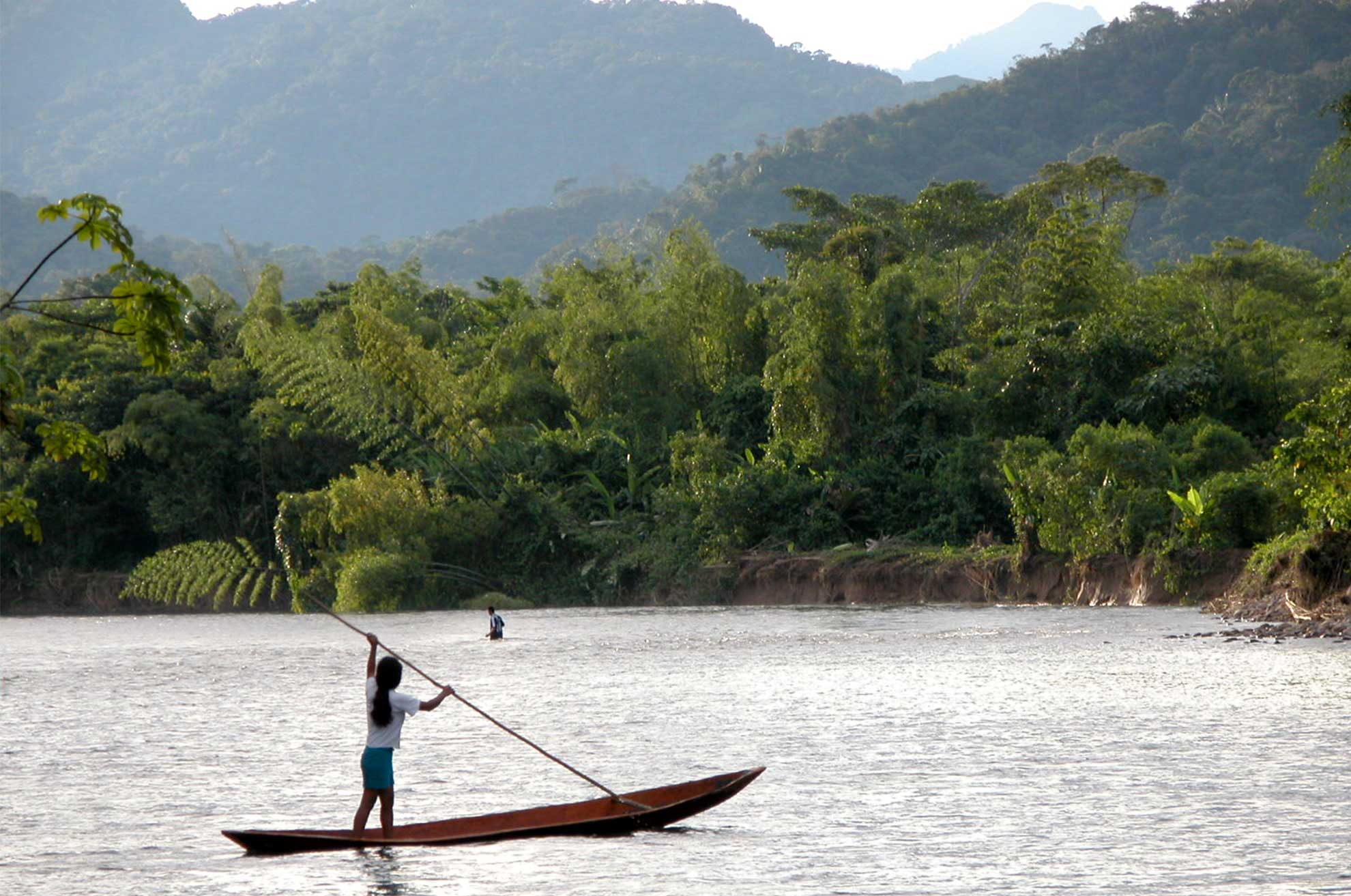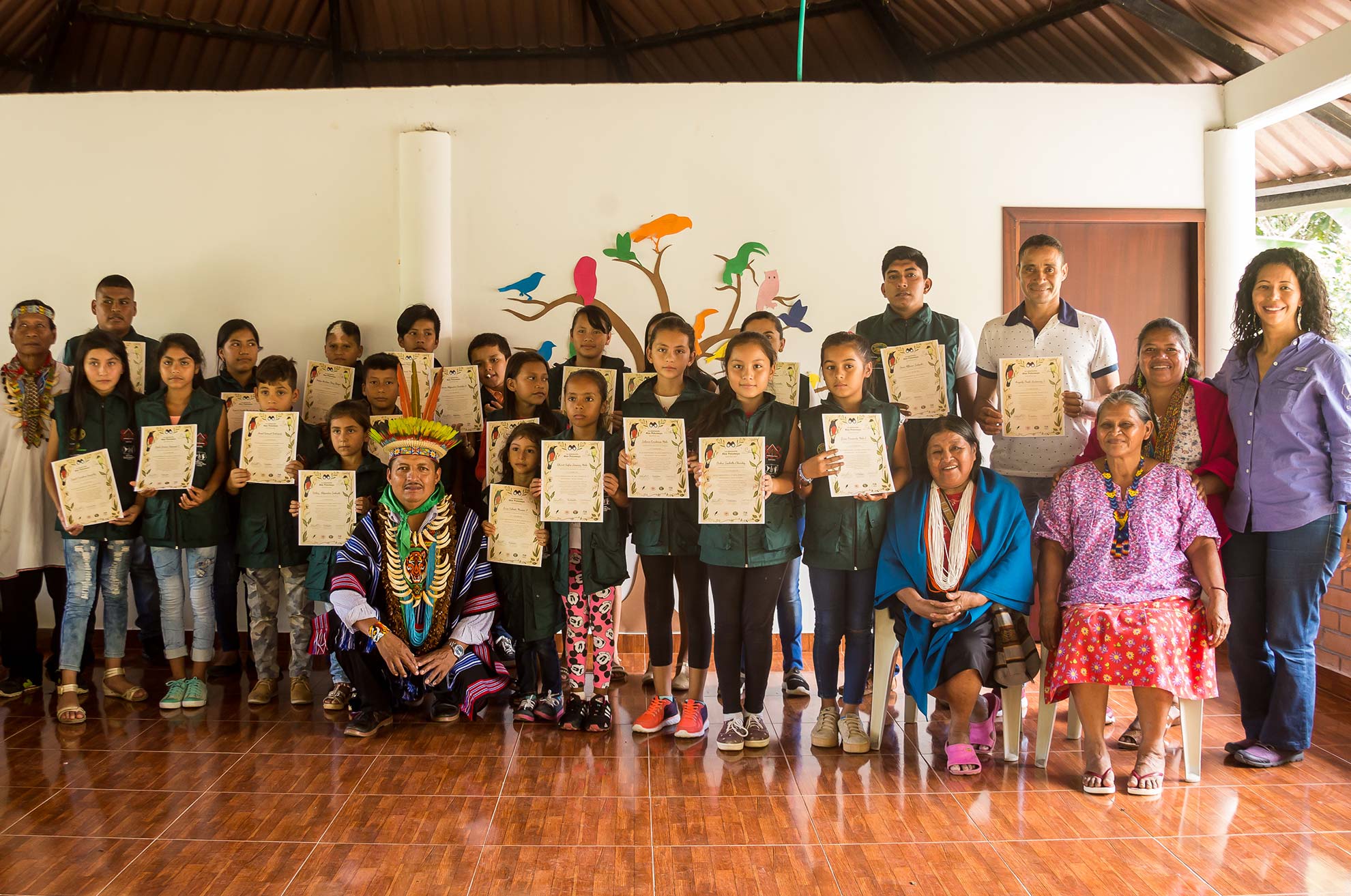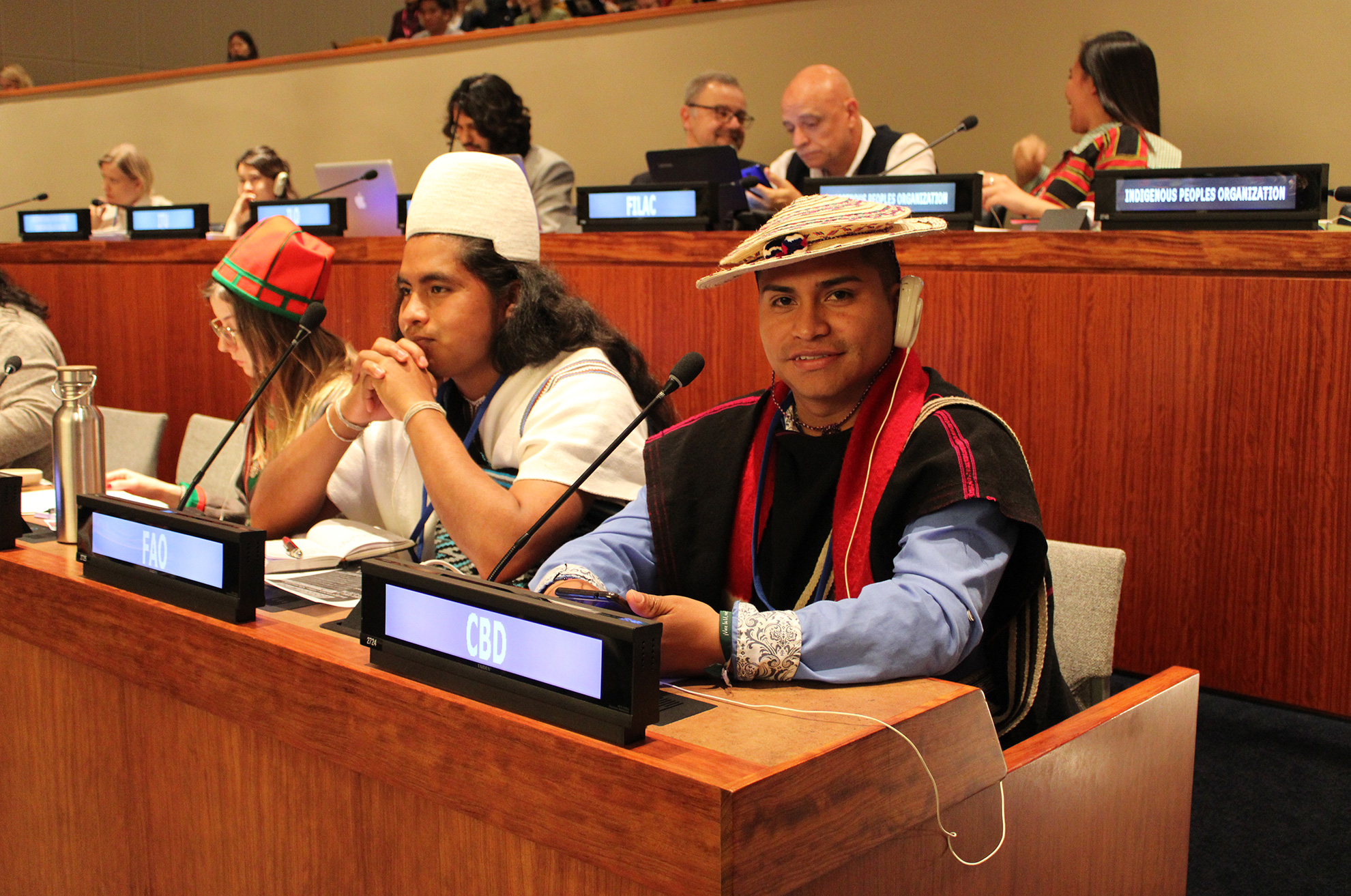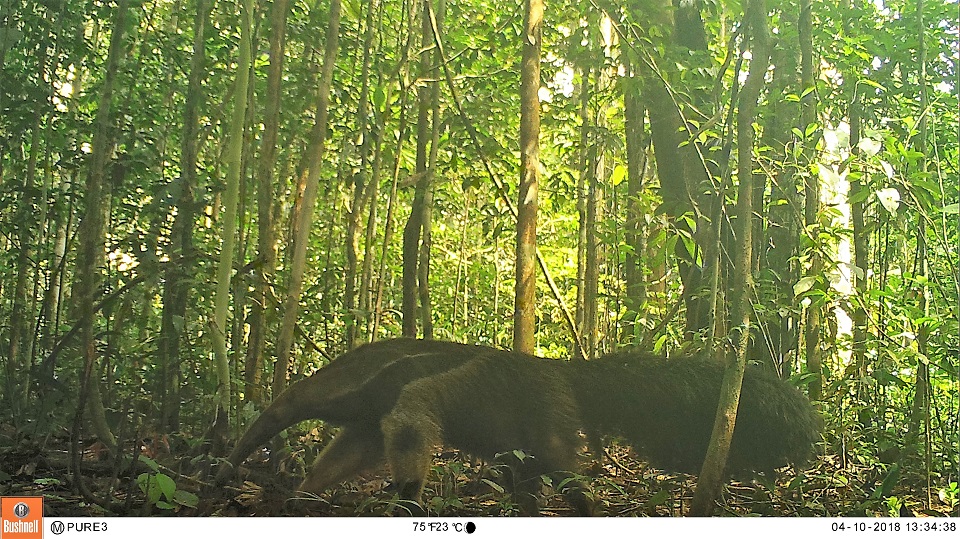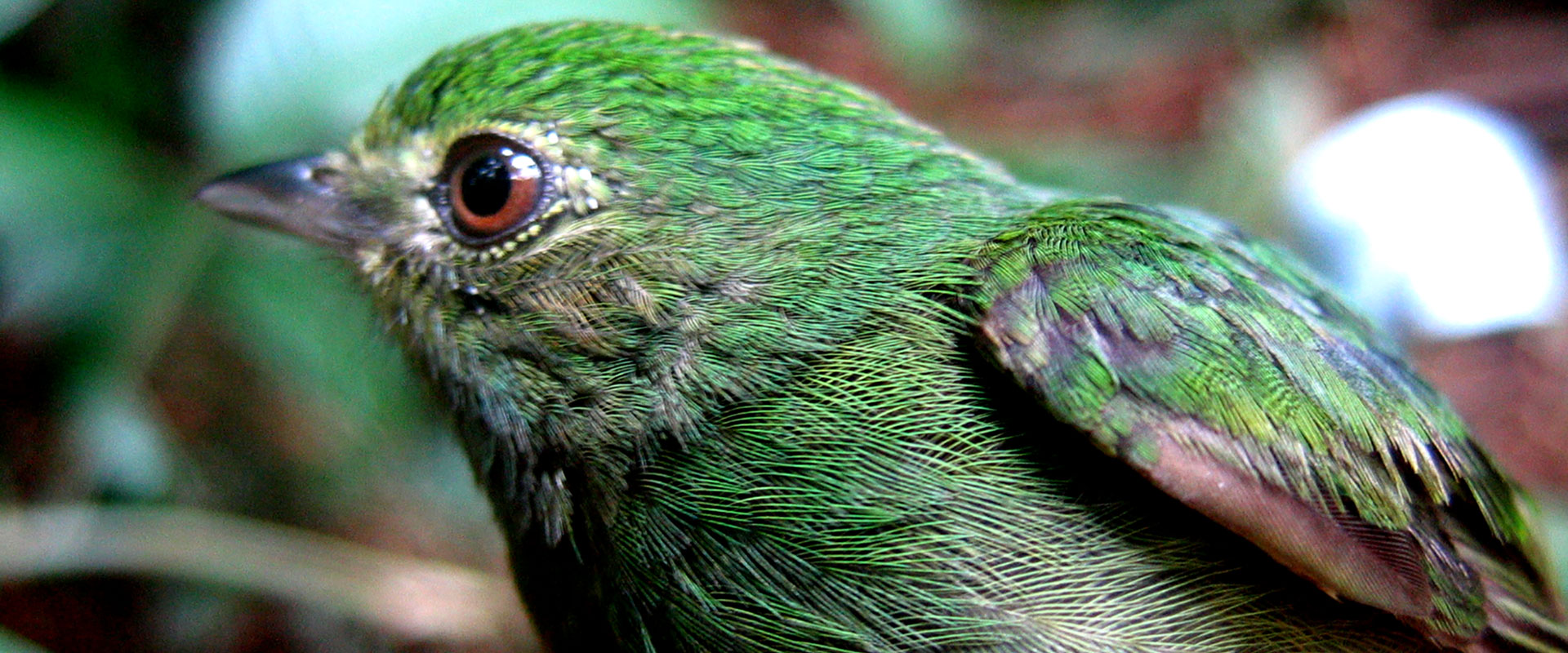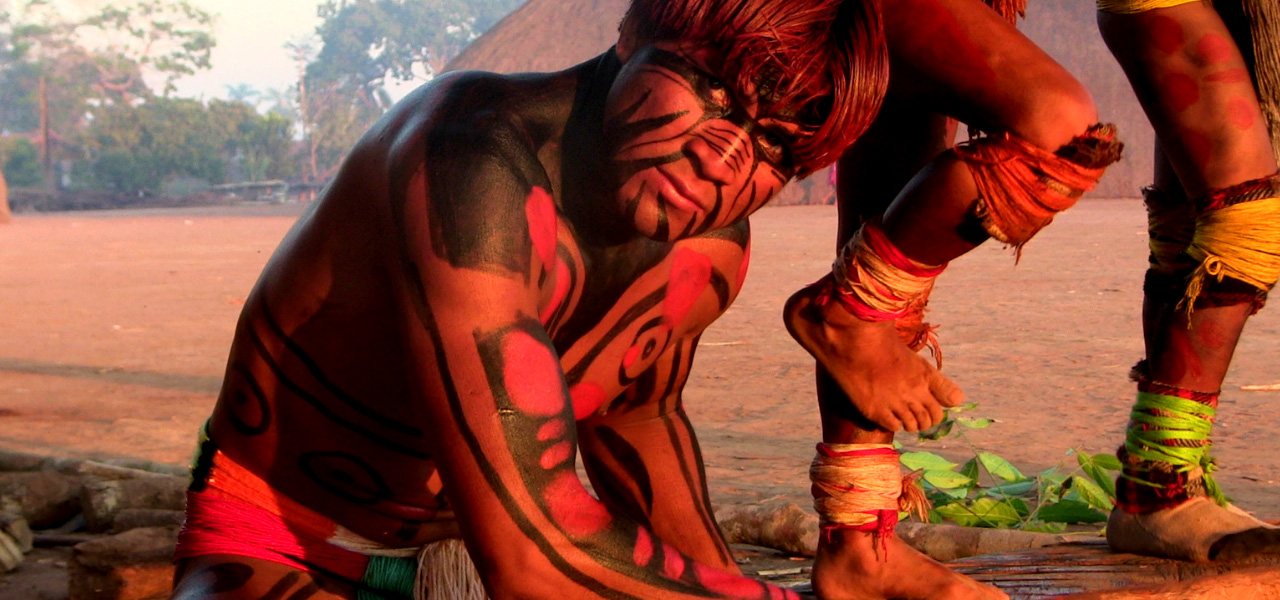Posts by Amazon Conservation Team
The General Secretariat of the Organization of American States and the Amazon Conservation Team Launch Partnership to Strengthen Indigenous Leaders in the Americas
(Washington, DC,) The Amazon Conservation Team (ACT) and the General Secretariat of the Organization of American States (OAS) announce a partnership to strengthen ACT’s Indigenous Leadership Fellowship program, providing new learning opportunities for indigenous students of the Americas in the OAS. This unique partnership will strengthen and enable leadership development opportunities at global and local…
Read MoreThe Isolated Tribes
In the Amazon, for hundreds of years, two peoples have no contact with the rest of humanity: the Yuris and the Passés. There are indications of 18 other groups fleeing from rubber tappers, missionaries, miners, drug traffickers and guerrillas. Their survival depends on halting deforestation.
Read MoreACT President & Co-Founder Receives Humanitarian Award from Harvard Extension School
Harvard Extension School has presented the 2019 “Michael Shinagel Award for Service” to Dr. Mark Plotkin of The Amazon Conservation Team.
Read MoreWhy are they persecuting us?
On this path of leadership, and as long as I can remember, I have experienced war. By: Waira Nina Jacanamijoy Mutumbajoy Original article appears in El Tiempo May 28, 2019 I have the honor of providing this space to Waira Nina Jacanamijoy Mutumbajoy, an artist and leader of the Inga people of the Yurayaco community…
Read MoreTraining Children and Youth as Bird Watchers of the Amazon-Andes Transition Region
“Exploring our Territory Through Birds” is a program through which ACT and Alas de Putumayo motivate children to study the different habitats of the birds of Putumayo.
Read MoreACT Indigenous Fellowship Program
The Amazon Conservation Team (ACT) has established an Indigenous Fellowship Program in partnership with Colombia’s Universidad Externado to provide indigenous college students with the opportunity to better understand the functioning of international cooperation agencies, international conventions, and funding aimed at supporting the rights of indigenous communities.
Read More30 Species of Animals Have Been Found and Filmed in the Río Puré National Park Using Camera Traps
Original article appears in El Espectador. Written by Redacción Medio Ambiente. This is the first time that this type of monitoring is being carried out in this protected area. Oncillas, tapirs and anteaters were among the animals recorded. The camera traps are not being placed in the vicinity of areas where indigenous peoples exist in isolation.…
Read MoreAmazon Conservation Team Reestablished in Brazil
On January 25, 2019, responding to several requests for partnership from indigenous communities in Brazil, the Amazon Conservation Team® (ACT®) decided to reestablish itself in the country. ACT began its work in Brazil at the turn of the 21st century. Through 2011, ACT supported several indigenous groups in mapping their cultural realities and traditional natural…
Read MoreConserving the Vast Biodiversity of the Colombian Amazon
The great wealth of biodiversity present in the Amazon is at serious risk of disappearing due to several threats, which must be addressed through the joint work of the various stakeholders in the region. One of the first steps in addressing this problem is to identify which species of flora and fauna are present in…
Read MoreSolar Solutions for Traditional Communities
For remote forest communities, steady sources of renewable power can improve air quality, minimize tree harvesting, and provide domestic lighting for the evening work, especially important for children’s studies. In the Waura village of Ulupuene, which is situated along the banks of the Batovi River within the confines of the Xingu Indigenous Territory in Brazil,…
Read More


